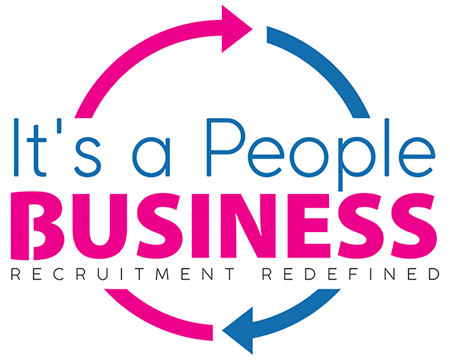
Recruiting and retaining the right talent is critical to the success of any business. However, the cost associated with it can be quite significant. Companies invest a considerable amount of money in their recruitment efforts, from job postings to recruiting events, and everything in between. While it’s important to spend money on finding the right candidates, it’s equally important to optimize your recruitment budget for maximum ROI. In today’s competitive job market, companies need to be strategic in their recruitment efforts to attract, hire, and retain top talent. This requires a well-thought-out recruitment strategy that focuses on driving results while minimizing costs.
Ensure that every penny you spend on recruitment is well worth it
Ensure that every penny you spend on recruitment is well worth it
In this blog post, we’ll explore the different ways that companies can optimize their recruitment budget to achieve maximum ROI. From identifying the key metrics to track to leveraging social media and employee referrals, we’ll cover the essential strategies that can help businesses get the most out of their recruitment budget. Whether you’re a small business owner or an HR professional, this post will provide valuable insights to help you optimize your recruitment budget and attract top talent without overspending. With the right approach, you can reduce your cost per hire while still maintaining a high level of quality in your candidate pool. By investing in the right recruitment channels, leveraging technology, and creating a positive candidate experience, you can increase your ROI and ensure that every penny you spend on recruitment is well worth it. So, let's dive into the best practices for optimizing your recruitment budget and achieving maximum ROI.
1. Understanding the Recruitment Landscape
1. Understanding the Recruitment Landscape

Understanding the recruitment landscape is crucial for any organization looking to optimize their recruitment budget for maximum ROI. Recruitment costs can be a significant expense for companies, and it is essential to implement cost-effective recruitment strategies. To do this, it is important to understand the current job market and the competition in your industry.
Read More: Outsourcing vs. In-House Hiring: Which is Right for Your Business?
Evaluating the job market can provide insight into the supply and demand of job seekers and the types of roles that are most in demand. Additionally, understanding the competition in your industry can help identify the recruitment strategies that are most effective for attracting top talent. By utilizing this knowledge, organizations can develop targeted recruitment campaigns that are both cost-effective and successful in attracting qualified candidates.
2. Strategic Job Posting
2. Strategic Job Posting
Employing a strategic approach to job posting stands out as an exceedingly cost-effective recruitment strategy, poised to amplify your recruitment budget's return on investment (ROI). This tactic entails pinpointing the most efficacious channels for advertising job openings, encompassing specialized job boards, industry-centric social media groups, and professional associations. Tailoring your job postings to a precise audience enhances the likelihood of drawing in qualified candidates genuinely intrigued by the role and possessing the necessary skills and expertise.
Read More: Mastering the Main Stages of Any Recruitment Discussion: A Practical Guide for Employers
Avoid generic job boards that have high traffic but attract a large number of unqualified candidates.
Furthermore, this method enables cost savings by bypassing generic job boards with high traffic but a surplus of unqualified applicants. Implementing a strategic job posting strategy equips you to extract maximum value from your recruitment budget while concurrently reducing the cost per hire. This approach not only ensures that your financial resources are allocated optimally but also increases the chances of securing exceptional talent that aligns with your organizational requirements. As a result, your recruitment endeavors become an exemplar of efficiency, generating potent ROI while fostering the acquisition of top-tier candidates.
3. Use data to track results
3. Use data to track results

One of the most effective cost-effective recruitment strategies is to use data to track results. By utilizing data-driven insights, you can determine which recruitment channels are providing the best results and optimize your recruitment budget accordingly. With the help of applicant tracking systems (ATS), you can easily track candidate sources and analyze their performance over time.
Read More:How to Use Social Media to Recruit and Engage Top Talent
This will help you identify which channels are driving the most qualified candidates, and which ones are not worth the investment. Additionally, tracking metrics like time-to-hire and cost-per-hire can help you identify areas for improvement in your recruitment process and optimize your budget accordingly. Overall, utilizing data to track your recruitment results is an essential strategy for maximizing your ROI and achieving successful cost-effective recruitment.
4. Utilising Technology and Automation
4. Utilising Technology and Automation

Cost-effective recruitment strategies are essential for businesses looking to optimize their recruitment budget for maximum ROI. One such strategy is utilizing technology and automation in the recruitment process. Technology can be used to automate tedious and time-consuming tasks such as resume screening, scheduling interviews, and sending follow-up emails. This not only saves time and effort but also ensures that the recruitment process is streamlined and efficient. Additionally, video interviews, online assessments, and virtual job fairs can be used to reduce the cost of travel and other related expenses. With the help of technology and automation, businesses can attract a larger pool of candidates, reduce time-to-hire, and ultimately save money in the recruitment process.
5. Invest in employee referrals
5. Invest in employee referrals

One cost-effective recruitment strategy that should not be overlooked is investing in employee referrals. By encouraging your current employees to refer their friends and acquaintances to your company, you can tap into a pool of qualified candidates without having to spend a lot of money on advertising and recruiting agencies. Additionally, referred candidates tend to have a higher chance of being a good fit for your organization because they already have a personal connection to someone on your team. To make the most of employee referrals, consider offering incentives to employees who successfully refer new hires, such as cash bonuses or extra vacation days. This will motivate employees to actively participate in the referral program and help you build a strong team at a lower cost.
Conclusion
Conclusion
Optimizing your recruitment budget is a crucial aspect of any HR strategy, and it requires careful planning and execution. By following the tips discussed in this post, you can ensure that your recruitment budget is spent wisely, resulting in a higher ROI and a more effective hiring process. Remember to track your metrics, leverage technology, focus on employer branding, and prioritize diversity and inclusion. By doing so, you can attract top talent, build a strong employer brand, and create a culture of excellence within your organization.
Read More: The Benefits of Working with a Flat Fee Recruiter
